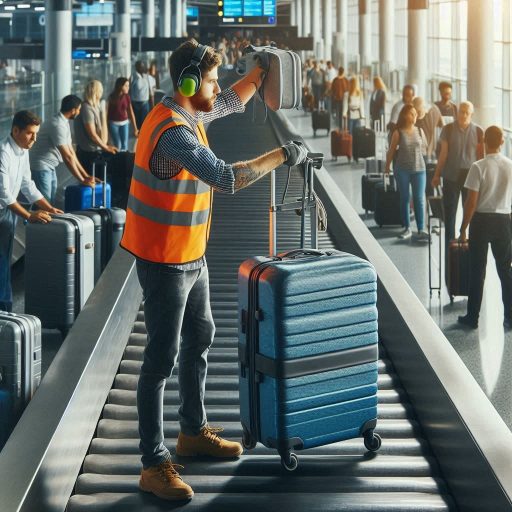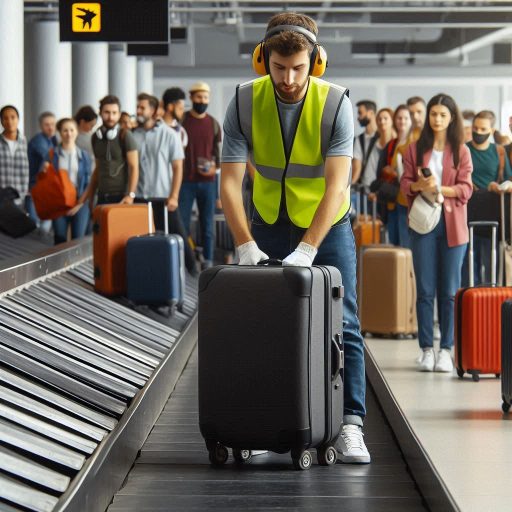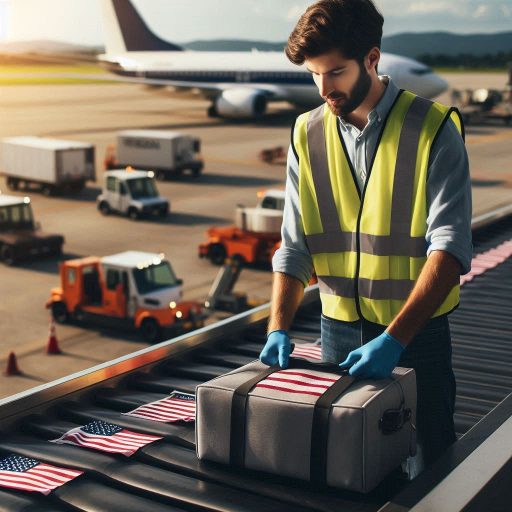Introduction
Fitness and health are crucial for flight attendants.
The demanding nature of their job requires physical stamina and mental resilience.
Flight attendants often work long hours and irregular schedules, leading to fatigue and stress.
Maintaining good health helps them perform their duties efficiently.
Physical fitness enhances endurance, strength, and flexibility.
These attributes are essential for handling emergency situations and ensuring passenger safety.
When flight attendants are fit, they can better manage their responsibilities and respond to challenges effectively.
Mental well-being is equally important.
Stress from travel and long shifts can impact focus and decision-making.
Flight attendants with good mental health are more adaptable and engaged in their work.
They can provide a higher level of service to passengers.
Prioritizing health and fitness leads to improved job performance.
Flight attendants who invest in their well-being can enjoy their careers more.
This commitment not only benefits them but also enhances the overall flight experience for passengers.
Fitness and health play a vital role in the success of flight attendants.
By focusing on both physical and mental well-being, they can excel in their careers and provide exceptional service.
Importance of Physical Fitness for Flight Attendants
The Physical Demands of the Job
Flight attendants face unique physical demands in their roles.
They spend long hours on their feet, often walking up and down the aisles.
They regularly lift heavy luggage and assist passengers with their bags.
This continuous movement can lead to fatigue if they are not physically fit.
Maintaining a good level of fitness helps them endure these physical challenges.
The job also requires agility and flexibility.
Flight attendants must navigate tight spaces, often bending and stretching to reach overhead compartments.
Being physically fit enhances their ability to maneuver quickly and efficiently in confined areas.
This agility can be crucial during emergency situations, where every second counts.
Moreover, flight attendants encounter varying time zones and irregular sleep patterns.
These factors can disrupt their circadian rhythms and impact overall health.
Staying fit can help counteract the effects of jet lag.
Regular exercise boosts energy levels and improves sleep quality.
This leads to better performance during long flights.
Benefits of Being Physically Fit for Handling Emergencies and Long Flights
In emergencies, physical fitness plays a critical role.
Flight attendants are trained to manage evacuation procedures and provide first aid.
A fit body enables them to carry out these responsibilities effectively.
They may need to assist passengers who are injured or disoriented.
Being in good shape helps them maintain stamina and composure during high-pressure situations.
Additionally, the benefits of physical fitness extend beyond job performance.
Regular exercise reduces the risk of chronic health issues.
Flight attendants face a higher risk of obesity, cardiovascular problems, and musculoskeletal injuries.
Engaging in physical activity helps mitigate these risks.
A strong body supports long-term health, which is vital for a demanding career.
Mental well-being is another key aspect of fitness.
Regular exercise releases endorphins, which enhance mood and reduce stress.
Flight attendants often deal with challenging passengers and stressful situations.
Maintaining physical fitness equips them with better coping strategies.
This resilience can significantly improve their job satisfaction and overall quality of life.
Nutrition also plays a vital role in a flight attendant’s fitness.
Proper fuel helps them sustain energy throughout their shifts.
A balanced diet contributes to overall health and enhances performance.
Packing healthy snacks can keep energy levels stable during long flights.
Staying hydrated is equally important, especially at high altitudes.
Physical fitness is crucial for flight attendants.
It prepares them for the demanding nature of their job.
Being fit not only enhances their ability to perform tasks but also supports their overall health.
Prioritizing fitness is an investment in their well-being and career longevity.
By maintaining a healthy lifestyle, flight attendants can better serve passengers and ensure a safe, pleasant travel experience.
Read: Nail Technician Networking: Building Industry Connections
Exercise Recommendations for Flight Attendants
Flight attendants require a balanced fitness routine to meet their job demands.
Incorporating a variety of exercises can enhance strength, endurance, and flexibility.
A well-rounded program helps them perform effectively during long flights and manage the physical challenges of their roles.
Types of Exercises That Can Help Improve Strength, Endurance, and Flexibility
To improve strength, flight attendants should focus on resistance training.
Bodyweight exercises, like push-ups and squats, are effective.
These movements build muscle and improve functional strength.
Resistance bands are another excellent tool for strength training.
They are portable and can be used anywhere, making them ideal for busy schedules.
For endurance, aerobic exercises are essential.
Activities such as brisk walking, running, and cycling elevate heart rates and boost stamina.
Flight attendants can also try interval training.
This involves alternating short bursts of high-intensity exercise with recovery periods.
This method maximizes fitness gains in a shorter time.
Flexibility is equally important for flight attendants.
Regular stretching routines can improve range of motion and reduce injury risk.
Incorporating yoga or Pilates can enhance flexibility while promoting relaxation.
These practices also help flight attendants manage stress and maintain mental well-being.
Incorporating core exercises is vital as well.
A strong core supports better posture and balance.
Exercises like planks and Russian twists engage core muscles effectively.
This stability helps flight attendants perform their duties with ease.
Importance of Incorporating Both Cardio and Strength Training Routines
Combining cardio and strength training is crucial for overall fitness.
Cardio exercises improve heart health and increase stamina.
They help flight attendants withstand the physical demands of their job.
Stronger muscles enable them to lift luggage and assist passengers efficiently.
Additionally, strength training boosts metabolism.
This can help maintain a healthy weight, which is essential in a high-demand job.
A balanced routine prevents muscle imbalances and supports overall body strength.
This balance is necessary to avoid injuries that can occur from repetitive movements.
Creating a workout schedule is important for consistency.
Flight attendants should aim for at least 150 minutes of moderate-intensity cardio weekly.
They should also include strength training exercises at least two days per week.
This approach helps establish a solid fitness foundation.
Staying active during layovers is a great strategy.
Flight attendants can utilize hotel gyms or local parks for quick workouts.
Simple activities like walking or bodyweight exercises can be very effective.
Incorporating movement throughout the day can enhance overall fitness.
A balanced exercise routine is vital for flight attendants.
It should include strength training, cardio, and flexibility exercises.
Prioritizing fitness not only improves job performance but also supports overall health.
By incorporating these exercises, flight attendants can thrive in their demanding roles while maintaining their well-being.
Read: The Role of Technology in Modern Pet Grooming
Healthy Eating Tips for Flight Attendants
Flight attendants face unique dietary challenges while traveling.
Maintaining a balanced diet is crucial for overall health and performance.
Irregular schedules and limited food options can make healthy eating difficult.
However, with some planning, flight attendants can make nutritious choices that support their demanding lifestyle.
Importance of Maintaining a Balanced Diet While Traveling
A balanced diet provides essential nutrients to fuel a busy workday.
It supports energy levels, immune function, and mental clarity.
Flight attendants often work long hours, requiring sustained energy.
A healthy diet helps them cope with fatigue and maintain focus during flights.
Eating well can also prevent health issues.
Flight attendants face risks such as obesity and digestive problems.
A diet rich in fruits, vegetables, lean proteins, and whole grains can mitigate these risks.
Proper nutrition enhances resilience against common ailments associated with frequent travel.
Furthermore, a balanced diet supports better sleep quality.
Irregular eating patterns can disrupt sleep cycles, leading to fatigue.
Consuming nutrient-dense meals helps regulate blood sugar levels.
This stabilization promotes restful sleep, which is vital for performance and safety.
Packing Nutritious Snacks and Meals for Flights
Packing nutritious snacks is essential for flight attendants.
They should opt for portable and non-perishable options.
Nuts and seeds are excellent sources of healthy fats and protein.
They provide lasting energy and are easy to pack.
Fruits like apples, bananas, and oranges are great choices.
They require minimal preparation and offer hydration and vitamins.
Dried fruits, such as apricots or raisins, are also convenient.
They provide a quick energy boost without added sugars.
Granola bars are another practical option.
Look for bars with whole grains, nuts, and seeds.
These bars can satisfy hunger without excessive calories or unhealthy additives.
High-protein snacks, like jerky or protein bars, can help sustain energy levels.
Meal prepping can also make healthy eating easier.
Flight attendants can prepare balanced meals before trips.
Lean proteins, such as grilled chicken or quinoa, provide essential nutrients.
Including colorful vegetables adds vitamins and minerals to meals.
When possible, flight attendants should choose healthier options at airports.
Many airports now offer fresh salads, yogurt, and whole grain wraps.
Reading labels can help them make informed choices.
Avoiding fried or heavily processed foods can support better health.
Hydration is equally important.
Flight attendants should drink plenty of water throughout their shifts.
Carrying a reusable water bottle can encourage regular hydration.
Staying hydrated supports overall health and helps maintain energy levels.
Healthy eating is crucial for flight attendants.
A balanced diet supports energy, performance, and overall well-being.
Packing nutritious snacks and meals ensures they make healthy choices while traveling.
By prioritizing their nutrition, flight attendants can thrive in their demanding roles and promote long-term health.
Read: Customer Service Tips for Pet Grooming Professionals
Tips for Staying Hydrated
Staying hydrated is essential for flight attendants.
Airplane cabins often have low humidity, leading to dehydration.
This dry environment can affect overall health and performance.
Prioritizing hydration helps maintain energy levels and supports well-being during long flights.
Importance of Staying Hydrated in the Dry Airplane Environment
The dry air inside airplanes can be particularly challenging.
Cabin humidity levels can drop as low as 10%.
This low humidity can cause dryness in the skin and eyes.
Dehydration can lead to fatigue, headaches, and reduced cognitive function.
Flight attendants must combat these effects to perform their duties effectively.
Proper hydration helps maintain physical health.
It supports digestion, circulation, and temperature regulation.
Drinking enough water can also enhance mood and concentration.
Flight attendants often face high-stress situations.
Staying hydrated helps them manage stress and remain focused.
Moreover, dehydration can weaken the immune system.
Flight attendants frequently travel to various locations, increasing their exposure to germs.
Staying hydrated boosts immunity, helping flight attendants fend off illness.
This resilience is crucial in maintaining consistent performance and service quality.
How Much Water to Drink Throughout the Day
Flight attendants should drink water regularly throughout the day.
A general guideline is to consume at least 8-10 cups of water daily.
However, individual needs may vary based on activity levels and environmental conditions.
Flight attendants should listen to their bodies and drink when thirsty.
During flights, it’s essential to drink water frequently.
A good practice is to drink a cup of water every hour.
This approach ensures consistent hydration throughout the flight.
Carrying a reusable water bottle can encourage regular water intake.
It serves as a constant reminder to stay hydrated.
Additionally, flight attendants can incorporate hydrating foods into their diets.
Fruits and vegetables, such as watermelon, cucumbers, and oranges, contain high water content.
Snacking on these foods can help increase overall hydration levels.
Including them in meals adds nutrients while supporting hydration.
Avoiding excessive caffeine and alcohol is also crucial.
Both substances can lead to increased dehydration.
Instead, flight attendants should prioritize water and herbal teas.
These options help replenish fluids without adverse effects.
Monitoring urine color can be a helpful hydration gauge.
Light yellow urine indicates proper hydration, while dark yellow suggests dehydration.
This simple check can guide flight attendants in adjusting their water intake.
Staying hydrated is vital for flight attendants.
The dry airplane environment can quickly lead to dehydration.
By following hydration recommendations and regularly drinking water, they can support their health and performance.
Prioritizing hydration enables flight attendants to thrive in their demanding roles while promoting overall well-being.
Read: Nail Technician Etiquette: Dos and Don’ts

Mental Health Tips for Flight Attendants
Flight attendants face unique challenges in their roles.
Long hours and frequent travel can lead to significant stress.
Managing stress is crucial for maintaining mental well-being.
By implementing effective techniques, flight attendants can thrive in their demanding jobs.
Importance of Stress Management Techniques for Coping with Long Hours and Jet Lag
Long hours can create physical and mental fatigue.
Flight attendants often work irregular schedules, which disrupts their sleep patterns.
This can contribute to increased stress and anxiety.
Effective stress management techniques are essential for coping with these challenges.
Stress can affect job performance and personal life.
Chronic stress may lead to burnout and physical health issues.
Flight attendants must recognize stressors and develop coping strategies.
Managing stress helps improve focus and emotional resilience.
Jet lag can exacerbate feelings of fatigue and irritability.
Traveling through multiple time zones affects the body’s internal clock.
This can lead to disrupted sleep and difficulty concentrating.
Learning how to manage jet lag is crucial for maintaining mental health.
Incorporating Mindfulness and Relaxation Practices Into Daily Routines
Incorporating mindfulness practices can significantly enhance mental well-being.
Mindfulness involves being present and fully engaged in the moment.
Flight attendants can practice mindfulness during breaks or layovers.
Simple techniques, like deep breathing exercises, can help ground them.
Meditation is another effective practice for reducing stress.
Even a few minutes of meditation can provide mental clarity.
Flight attendants can use apps or guided recordings to assist their practice.
Consistent meditation helps cultivate a sense of calm amid chaos.
Yoga is also beneficial for mental and physical health.
Many yoga poses promote relaxation and release tension.
Flight attendants can perform simple stretches during layovers or before flights.
This practice enhances flexibility while calming the mind.
Establishing a relaxation routine can improve overall mental health.
Flight attendants should prioritize self-care during layovers.
Engaging in enjoyable activities, such as reading or listening to music, can promote relaxation.
Setting aside time for hobbies helps recharge their mental batteries.
Sleep hygiene is vital for managing stress and jet lag.
Creating a comfortable sleep environment helps improve sleep quality.
Flight attendants should establish a bedtime routine that promotes relaxation.
Limiting screen time before bed can enhance sleep quality.
Seeking social support is also important.
Connecting with colleagues or friends provides a sense of community.
Sharing experiences and discussing challenges can reduce feelings of isolation.
Flight attendants should prioritize building strong support networks.
Mental health is essential for flight attendants.
Stress management techniques help cope with long hours and jet lag.
Incorporating mindfulness and relaxation practices into daily routines promotes overall well-being.
By prioritizing their mental health, flight attendants can enhance their performance and enjoy a fulfilling career.
Importance of Sleep for Flight Attendants
Sleep is crucial for flight attendants, given their demanding schedules.
Irregular hours and frequent travel can significantly impact sleep quality.
Prioritizing rest is essential for maintaining health and performance in this profession.
Understanding the importance of sleep can lead to better well-being.
Transform Your Career Today
Unlock a personalized career strategy that drives real results. Get tailored advice and a roadmap designed just for you.
Start NowImpact of Irregular Schedules on Sleep Quality
Flight attendants often face unpredictable schedules.
They may work nights, early mornings, and varying shifts.
This irregularity disrupts their natural circadian rhythms.
When the body’s internal clock is misaligned, sleep quality suffers.
Poor sleep can lead to fatigue, decreased alertness, and irritability.
These factors can affect job performance and passenger safety.
Additionally, chronic sleep deprivation can contribute to long-term health issues.
Flight attendants may experience an increased risk of obesity, cardiovascular disease, and mental health problems.
Jet lag adds another layer of complexity.
Traveling across multiple time zones disrupts sleep patterns even further.
This condition can make it challenging to fall asleep and wake up refreshed.
Flight attendants must learn how to manage these effects effectively.
Tips for Creating a Sleep-Friendly Environment and Establishing a Bedtime Routine
Creating a sleep-friendly environment is vital for improving sleep quality.
Flight attendants should prioritize comfort in their sleeping areas.
Investing in a quality mattress and pillows can significantly enhance sleep.
A dark, quiet, and cool room promotes better rest.
Using blackout curtains can block out light, creating an ideal sleeping environment.
Earplugs or white noise machines can drown out disruptive sounds.
Keeping the room temperature cool helps the body prepare for sleep.
Establishing a consistent bedtime routine is equally important.
Flight attendants should set a regular sleep schedule, even on days off.
Going to bed and waking up at the same time helps regulate the body’s internal clock.
This consistency fosters better sleep quality over time.
Incorporating relaxing activities into the bedtime routine can signal the body to wind down.
Activities like reading, gentle stretching, or meditation can promote relaxation.
Limiting screen time before bed helps reduce exposure to blue light.
This practice can enhance melatonin production, leading to better sleep.
Mindfulness practices can also aid in falling asleep.
Deep breathing exercises and progressive muscle relaxation help calm the mind.
These techniques reduce anxiety and prepare the body for rest.
Managing caffeine and alcohol intake is essential for better sleep.
Flight attendants should avoid these substances, especially close to bedtime.
Caffeine can disrupt sleep patterns, while alcohol can reduce sleep quality.
Sleep is vital for flight attendants.
Irregular schedules can negatively impact sleep quality and overall health.
Creating a sleep-friendly environment and establishing a consistent bedtime routine can promote better rest.
By prioritizing sleep, flight attendants can improve their well-being and enhance job performance.
Ways to Stay Active During Layovers
Staying active during layovers is essential for flight attendants.
Long hours of sitting can lead to fatigue and stiffness.
Incorporating physical activity into layovers can enhance well-being and energy levels.
Here are some practical ways to stay active during these breaks.
Finding Local Gyms or Yoga Studios
Finding a local gym or yoga studio can keep flight attendants fit.
Many cities have fitness centers that offer day passes.
Apps like Yelp or Google Maps can help locate nearby gyms.
Flight attendants should research options in advance for convenience.
Many hotel chains also have fitness facilities.
Check if your hotel has a gym available for guests.
Utilizing these amenities can save time and effort.
Consider bringing workout clothes and gear for easy access.
Yoga studios can provide a great way to stretch and relax.
Many studios offer drop-in classes for travelers.
Flight attendants can search online for nearby studios and their schedules.
Practicing yoga helps improve flexibility and reduce stress.
If a gym is not available, consider bodyweight workouts.
These workouts require minimal equipment and can be done anywhere.
Exercises like push-ups, squats, and planks are effective.
Incorporate a short workout routine in hotel rooms or parks.
Incorporating Sightseeing or Outdoor Activities into Layover Plans
Sightseeing is an excellent way to stay active during layovers.
Exploring a new city on foot or by bike keeps the body moving.
Walking tours can provide a unique perspective on local attractions.
This activity combines fitness with the enjoyment of discovering new places.
Consider visiting local parks for outdoor activities.
Many parks offer walking trails, jogging paths, and open spaces.
Flight attendants can enjoy fresh air while staying active.
Engaging in activities like jogging or cycling can elevate heart rates and boost energy levels.
Local attractions often include outdoor experiences.
Check if the destination has hiking trails or waterfront activities.
Exploring natural landscapes provides a great workout and an opportunity to relax.
Activities like kayaking or paddleboarding can enhance physical fitness while enjoying nature.
Connecting with fellow flight attendants can also enhance layover experiences.
Group activities can make exercise more enjoyable and motivating.
Consider organizing a group run or hike during layovers.
These shared experiences foster camaraderie and make workouts more fun.
Finally, plan layover itineraries that include physical activities.
Look for opportunities to engage in fitness-related events or classes.
Many cities offer dance, martial arts, or fitness workshops.
Participating in these activities can be a fun way to stay active.
Staying active during layovers is crucial for flight attendants.
Finding local gyms, yoga studios, and outdoor activities can enhance fitness.
Incorporating sightseeing and exercise into layover plans promotes overall well-being.
By prioritizing physical activity, flight attendants can maintain their energy and health while traveling.
Conclusion
Fitness and health are vital for flight attendants in their demanding roles.
Maintaining physical fitness enhances performance during long flights and challenging situations.
Regular exercise improves endurance, strength, and flexibility, enabling flight attendants to manage their responsibilities effectively.
Additionally, prioritizing mental health is essential for overall well-being.
Flight attendants face stress from irregular schedules and frequent travel.
Incorporating mindfulness and relaxation practices helps manage stress levels.
Good sleep hygiene and hydration further support their mental and physical health.
Healthy eating habits play a significant role in maintaining energy and focus.
Packing nutritious snacks and meals ensures optimal nutrition during shifts.
Staying active during layovers promotes fitness and enhances mood.
Flight attendants should remember that their well-being directly impacts their performance.
By prioritizing fitness and health, they can excel in their careers.
Taking small steps toward better health can lead to significant improvements over time.
Ultimately, flight attendants have the power to create positive changes in their lives.
Embracing a healthy lifestyle not only benefits them but also enhances their service to passengers.
Prioritizing health and fitness is essential for success in this rewarding profession.
[E-Books for Sale]
The Big Book of 500 High-Paying Jobs in America: Unlock Your Earning Potential
$19.99 • 500 High-Paying Jobs • 330 pages
Explore 500 high-paying jobs in America and learn how to boost your career, earn more, and achieve success!
See All 500 High-Paying Jobs of this E-Book
1001 Professions Without a Degree: High-Paying American Jobs You Can Start Now
$19.99 • 1001 Professions Without a Degree • 174 pages
Discover 1001 high-paying jobs without a degree! Unlock career tips, skills, and success strategies for just $19.99!




